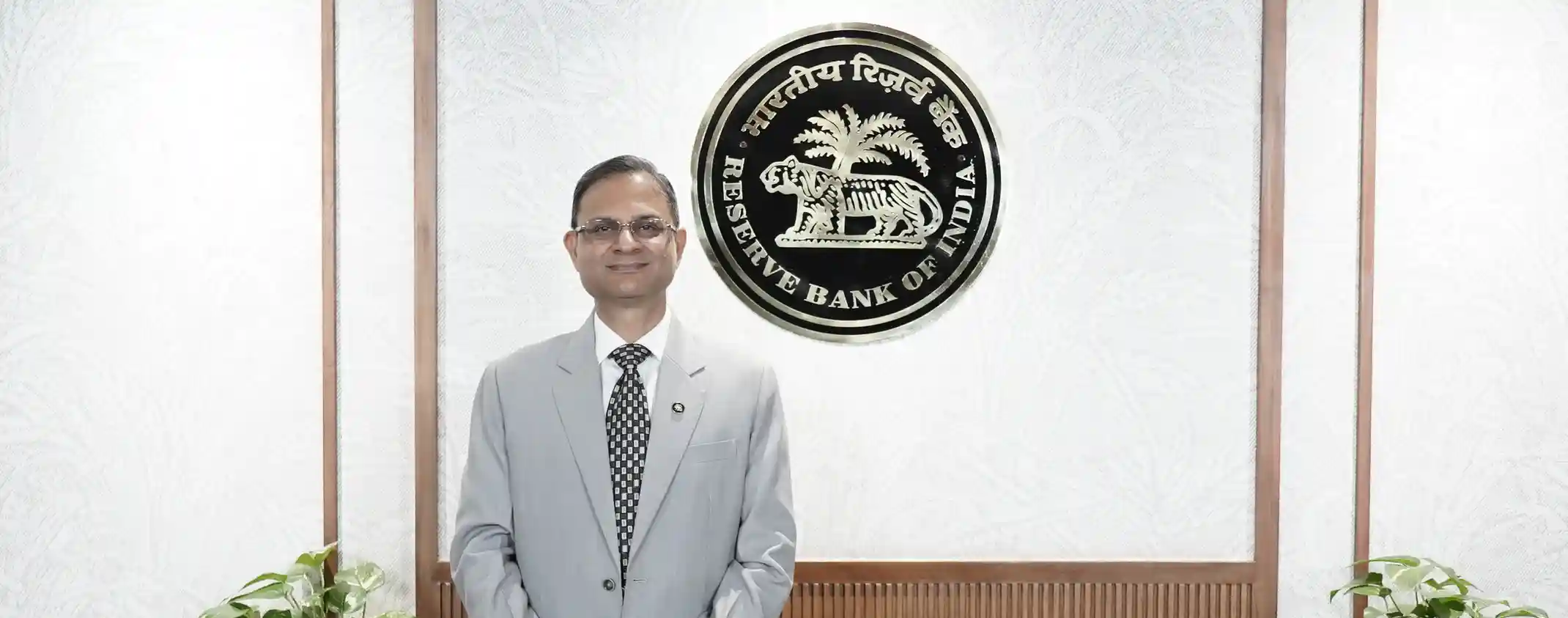Speeches - ఆర్బిఐ - Reserve Bank of India
Speeches
I am happy to be back at the Financial Express Modern BFSI Summit. I remember having participated in the June 2022 edition of this summit where I had spoken on ‘Disruptions & Opportunities in the Financial Sector’. The macroeconomic conditions back then were very different and challenging to say the least, as we were grappling with overlapping shocks from the war in Ukraine and the surge in inflation at a time when the world was still recovering from the Covid-19 pandemic. Since then, we have come a long way. Amidst global challenges and uncertainties, India stands out as a fast growing major economy with stronger macroeconomic fundamentals and a healthy and resilient financial sector.
I am happy to be back at the Financial Express Modern BFSI Summit. I remember having participated in the June 2022 edition of this summit where I had spoken on ‘Disruptions & Opportunities in the Financial Sector’. The macroeconomic conditions back then were very different and challenging to say the least, as we were grappling with overlapping shocks from the war in Ukraine and the surge in inflation at a time when the world was still recovering from the Covid-19 pandemic. Since then, we have come a long way. Amidst global challenges and uncertainties, India stands out as a fast growing major economy with stronger macroeconomic fundamentals and a healthy and resilient financial sector.
Namaskar! Good afternoon I am honoured to be invited to the Lal Bahadur Shastri National Academy of Administration (LBSNAA), a temple of independent India with a rich and hallowed history that predates independence. I thank Madam Sowjanya for her gentle perseverance and deft management of logistics that made it possible for me to be here. I understand that this is the 18<sup>th</sup> round of phase IV of the Academy’s mid-career training programme. Participants here have already put in 15 to 18 years in the service of the nation and are, therefore, primed
Namaskar! Good afternoon I am honoured to be invited to the Lal Bahadur Shastri National Academy of Administration (LBSNAA), a temple of independent India with a rich and hallowed history that predates independence. I thank Madam Sowjanya for her gentle perseverance and deft management of logistics that made it possible for me to be here. I understand that this is the 18<sup>th</sup> round of phase IV of the Academy’s mid-career training programme. Participants here have already put in 15 to 18 years in the service of the nation and are, therefore, primed
Shri Ajay Bhushan Prasad Pandey, Chairperson, National Financial Reporting Authority; Shri M R Rao, Deputy Governor Reserve Bank of India; Executive Directors from Reserve Bank of India; CA Ranjeet Agarwal, President Institute of Chartered Accountants of India; Auditors and Chief Financial Officers from the Banks and All India Financial Institutions; my colleagues from the Reserve Bank of India; Ladies and Gentlemen. Good morning.
Shri Ajay Bhushan Prasad Pandey, Chairperson, National Financial Reporting Authority; Shri M R Rao, Deputy Governor Reserve Bank of India; Executive Directors from Reserve Bank of India; CA Ranjeet Agarwal, President Institute of Chartered Accountants of India; Auditors and Chief Financial Officers from the Banks and All India Financial Institutions; my colleagues from the Reserve Bank of India; Ladies and Gentlemen. Good morning.
I am delighted to be here today to convey my thoughts on the issue of statutory audit of commercial banks and AIFIs. In many ways, we, as Regulators/ Supervisors and you as Auditors, share a common goal. Auditors play a very crucial role in ensuring the health of the financial system as they assist in maintainance of regulatory oversight by ensuring that the financial statements present a true and fair picture of the affairs of the regulated entity. The statutory auditors play a significant role in maintaining stakeholder confidence in audited financial statements and this is particularly important in the case of banking industry where the entire edifice is built on ‘trust’ and the biggest external stakeholders, i.e., depositors are fragmented and unorganised. Therefore, the Reserve Bank has a strong interest in promoting sound and high quality accounting and disclosure standards for the banking and financial industry as well as in having transparent and comparable financial statements that strengthen market discipline
I am delighted to be here today to convey my thoughts on the issue of statutory audit of commercial banks and AIFIs. In many ways, we, as Regulators/ Supervisors and you as Auditors, share a common goal. Auditors play a very crucial role in ensuring the health of the financial system as they assist in maintainance of regulatory oversight by ensuring that the financial statements present a true and fair picture of the affairs of the regulated entity. The statutory auditors play a significant role in maintaining stakeholder confidence in audited financial statements and this is particularly important in the case of banking industry where the entire edifice is built on ‘trust’ and the biggest external stakeholders, i.e., depositors are fragmented and unorganised. Therefore, the Reserve Bank has a strong interest in promoting sound and high quality accounting and disclosure standards for the banking and financial industry as well as in having transparent and comparable financial statements that strengthen market discipline
I am happy to inaugurate the eighteenth Statistics Day Conference of the Reserve Bank. This annual event provides us with an opportunity to reflect on the current and evolving state of statistical system. It also helps us to take stock of the refinements in application of statistical methods and technologies in the realm of public policy.
I am happy to inaugurate the eighteenth Statistics Day Conference of the Reserve Bank. This annual event provides us with an opportunity to reflect on the current and evolving state of statistical system. It also helps us to take stock of the refinements in application of statistical methods and technologies in the realm of public policy.
పేజీ చివరిగా అప్డేట్ చేయబడిన తేదీ: జూన్ 24, 2025


















